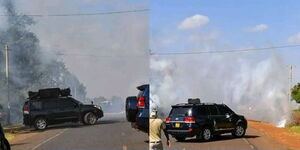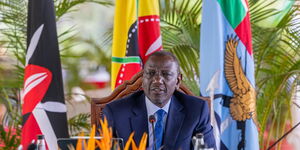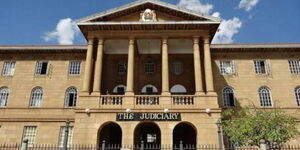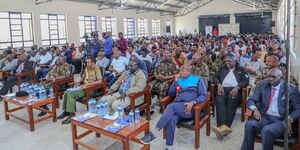President William Samoei Ruto’s administration has implemented tremendous changes to the normal operations of various activities in the country.
The changes have been implemented through the laws and directives issued by elected leaders on the Kenya Kwanza ticket.
Closure of Pubs
In Nairobi county, governor Johnson Sakaja directed all entertainment joints in residential places to be closed down.
He revoked the licenses of those who operated after his directive and announced that the existing licenses would not get renewed.
Sakaja announced that the existing pubs would henceforth operate as bars and restaurants, only within specific times.
“Bars and restaurants in residential areas must operate within the specified time and control noise emanating from their premises. Specifically, playing of music must stop by 10 pm,” read a statement signed by Nairobi County Secretary Dr. Jairus Musumba.
He indicated that only pubs in the Central Business District would be issued with new licenses.
“Henceforth nightclub licenses will be issued to premises only within the Central Business District and specified streets in other non-residential areas,” he added.
Competency-Based Curriculum (CBC)
Former president Uhuru Kenyatta had earlier directed Ksh 8B funding for classrooms in preparation for junior secondary before the end of his tenure.
He asked the Ministries of Education, Interior, and National Treasury to ensure funds were procured to oversee the projects.
However, on December 1, President William Ruto announced a new directive, completely changing his predecessor’s plan.
He directed that the junior secondary schools; Grade 7, Grade 8, and Grade 9 be domiciled in the existing primary schools.
"The Ministry of Education will provide the necessary guidelines on how this will be done," a statement issued by State House Spokesperson Hussein Mohamed read in part.
Security
President William Ruto’s government announced that it would restore police officers for the chiefs as a way of improving security.
Interior Cabinet Secretary Kithure Kindiki announced that chiefs would have at least five police officers assigned to them and be required to keep work plans and a register of services,
According to Kindiki, this was part of the government's long-term plan of empowering grassroots administrators.
"We are working towards reorganizing ourselves between the National Government Administration Officers (NGAOs) and the police to ensure that every chief has police officers attached to them to enable them to enforce law and order,” he stated.
Credit Reference Bureaus (CRB)
As a way of delivering on Ruto's promise of relieving the burden from CRB defaulters, the Central Bank of Kenya on November 14, announced a framework to restructure its credit standing.
CBK announced that it was rolling out a Credit Repair Framework aimed at improving the credit standing of mobile phone digital borrowers.
According to the regulator, the programme was agreed upon by the commercial banks, microfinance banks, and mortgage finance companies that offered loans to mobile phone users.












